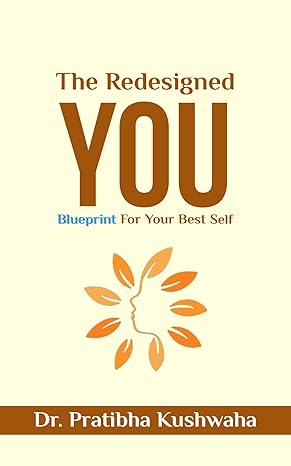Having a Choice is Better Than Not Having a Choice
In the fast-paced, interconnected world we live in today, the concept of having a choice takes on an even greater significance. Whether in personal lives, careers, relationships, or decisions as consumers, the ability to choose has an impact on our mental well-being, our sense of autonomy, and our overall quality of life. While some argue that fewer choices might reduce decision-making stress, it’s widely acknowledged that having the freedom to choose provides greater control, satisfaction, and empowerment.
The Value of Choice in Personal Freedom
Imagine a world where every decision—from what to eat, wear, or do—is determined by others. This sounds restrictive because, fundamentally, humans thrive when they have a say over their actions. Choice fuels personal freedom, which is at the core of self-determination. Freedom to make choices helps cultivate a sense of independence, empowering individuals to take charge of their lives.
Having choices doesn’t just relate to large life decisions but also to small daily actions. Each choice reinforces our sense of agency, reminding us that we are the architects of our lives. Being able to decide to wake up early, read a new book, or take up a hobby may seem trivial, but these small decisions build a stronger, more self-aware individual.
Choice and Psychological Well-being
The psychology behind choice shows that having options can lead to a positive state of mind. Studies suggest that people who feel they have control over their lives report higher satisfaction, better health, and overall happiness. Choice is empowering; it allows people to align their lives with personal values and interests.
On the other hand, the absence of choice can create a feeling of helplessness. For instance, being stuck in a job or relationship without alternatives may lead to resentment, stress, and even depression. Having options—even if they are hard choices—gives individuals a way out of difficult circumstances and a chance to explore new paths.
The Paradox of Choice: Is There a Limit?
Some argue that too many choices can create stress, leading to what’s known as the “paradox of choice.” In this phenomenon, the sheer volume of options can lead to decision paralysis, where individuals feel overwhelmed and are unable to make a choice at all. But while having too many options can indeed be overwhelming, having too few can feel limiting.
The key lies in meaningful choice. When choices align with personal values and goals, decision-making becomes simpler, more purposeful, and less stressful. Instead of choosing between trivial options, making choices that are aligned with one’s purpose or needs can reduce anxiety and enhance satisfaction.
Choice in Career and Education
One of the most impactful areas where choice matters is in education and career. A person who can freely choose a career path based on their interests, talents, and goals is more likely to feel fulfilled and motivated in their work. Conversely, when career choices are limited or dictated by circumstances, people can feel trapped, leading to dissatisfaction.
The same applies to education. Students thrive in environments where they can pursue subjects and disciplines that resonate with their strengths and aspirations. Choice in education not only fosters passion but also encourages creativity and innovation. When individuals are allowed to choose their paths, they are more likely to excel and contribute positively to society.
Choice and Relationships
Relationships are another area where the power of choice plays a pivotal role. The freedom to choose one’s partner, friends, or associates is essential to forming genuine, meaningful connections. Relationships born from choice allow individuals to invest emotionally, resulting in deeper, more authentic bonds.
When people lack choice in relationships—whether due to societal expectations or cultural norms—they might stay in unfulfilling or even toxic situations. Choice here brings about the opportunity for individuals to select connections that are supportive and nurturing, fostering positive relationships that enhance well-being.
Choice in Consumerism: Empowering or Overwhelming?
From online shopping to selecting a phone, we are presented with countless options. At times, the consumerist model of choice can feel daunting. But, at its core, consumer choice is empowering. People can make decisions based on their preferences, values, and budgets.
While too many choices may feel overwhelming, the ability to choose the best product, brand, or service enhances a sense of autonomy. For instance, consumers today can select eco-friendly products, supporting sustainability if that aligns with their values. This level of choice allows individuals to shape industries, as businesses adapt to the preferences and demands of their customers.
Having Choices vs. Choosing Wisely
It’s important to note that while having choices is empowering, making wise choices is crucial. The value of choice doesn’t come from the sheer number of options but from the quality of decisions made. Making informed, well-considered choices can be life-changing, whereas impulsive choices may lead to regrets.
An example is financial planning. Individuals have many choices in how they invest, spend, or save their money. Those who take the time to research and choose wisely can achieve financial stability and independence. This principle applies to many areas in life, including career moves, relationships, and even personal development.
How Choice Shapes Identity and Personal Growth
Choice plays a key role in shaping identity. People become more aware of their values, beliefs, and goals through the process of making choices. Each choice becomes a reflection of who they are, revealing character and establishing identity.
Consider the story of people who choose to pursue non-traditional career paths. Their choices define them as individuals willing to go against the grain, to follow their passions and interests. In making these unconventional choices, they often experience profound personal growth, learning resilience, independence, and self-belief.
Limitations of Choice: When Less is More
There are instances when limited choices may actually enhance satisfaction. This might sound contradictory, but in scenarios where people have clarity and focus, they may find fulfillment without extensive options. For example, those pursuing a spiritual or minimalist lifestyle often find happiness by limiting choices and focusing on simplicity. This philosophy helps reduce distractions and bring peace of mind.
The concept of intentional choice teaches that sometimes, fewer choices can lead to greater contentment. By filtering out unnecessary options, people are left with decisions that are more meaningful, thereby reducing stress and increasing happiness.
Conclusion: The Freedom to Choose is Essential for Human Fulfillment
Having a choice is more than a luxury; it is a necessity for a fulfilling life. Choices, whether large or small, shape our experiences, our relationships, and our identities. When given the freedom to choose, individuals develop autonomy, resilience, and self-awareness, empowering them to navigate life with confidence.
The essence of choice is not about accumulating options but rather about making thoughtful decisions that reflect one’s true self. While too many options may at times create confusion, having the power to choose—especially in meaningful aspects of life—remains a fundamental part of human happiness and fulfillment. In a world full of paths and possibilities, having a choice will always be better than having none at all.


